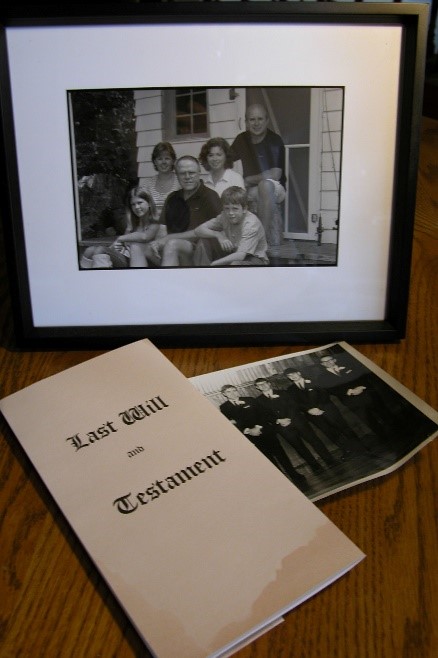Strings Attached (1): Conditional Gifts in your Will
by Michelle Chew Ai Pin ~ 7 September 2021
The rising cost of living means that the future generation experiences adulthood very differently from how their parents did. It is undeniable that people now are worried as to the ability of their children or loved ones’ financial management abilities, who may or may not have concrete plans for the future. As such, when it comes to financial planning and wills, one realises that leaving their entire estate at one go might not be the wisest move. So when one is drafting a will, you may have the following thoughts:
- What if I want my children to inherit my house after their 21st birthday?
- What if I want my savings to only be used for my children’s or other loved ones’ living expenses?
- What if I have children who are special who will not be able to manage the assets after my death?
An effective exercise starts with writing a Will that lays out your exact wealth transfer wishes. While Malaysia recognizes testamentary freedom, there are ways in which you can attach conditions to gifts, or even create trusts where necessary, to retain some sort of control over your assets in the event you pass away.
In this article, we will be exploring what is a “conditional gift” and how to utilise this mechanism for Wills.
Conditional Gifts
A conditional gift is a gift which is subjected to a condition precedent stipulated by the testator in his will. All that the donee (intended recipient) must do is to establish, if he can, at the relevant date, satisfy the condition.
One may ask what type of conditions can I include in my Will? While Malaysian laws acknowledge testamentary freedom and this is also reflected in section 21 of the Wills Act 1959, there are a few restrictions on conditional gifts:
Unlawful objects
As to what constitutes an unlawful object see the s 24 Contracts Act 1950 which provides that an object of an agreement is unlawful if:
- (1) it is forbidden by a law;
- (2) it is of such a nature that, if permitted, it would defeat any law;
- (3) it is fraudulent;
- (4) it involves or implies injury to the person or property of another;
- (5) the court regards it as immoral, or opposed to public policy.
Gifts which are contrary to public policy
Examples:
- Inciting a donee to commit an unlawful act (Mitchel v Reynolds (1711) 1 P Wms 181 at 189)
- Use corruption; Inciting a donee to exert private or political party influence in any matter or act of state (Egerton v Earl Brownlow (1853) 4 HL Cas 1 at 59, 99, 172)
- Tending to produce a future separation of husband and wife (Re Caborne, Hodge and Nabarro v Smith [1943] Ch 224, [1943] 2 All ER 7)
- Separation of parent and child (Re Boulter, Capital and Counties Bank v Boulter [1922] 1 Ch 75)
- Unreasonably restraining marriage, trade or industry (Cooke v Turner (1846) 15 M & W 727 at 736)
Impossible to Perform or uncertain
- A condition is void when it is repugnant to the interest given to the donee, or is repugnant to other gifts in the will (eg. giving away the same item twice), or is otherwise inconsistent with other provisions of the Will. It must also be possible for the condition to be complied with (eg. a condition that the donee visit the moon before they receive the gift would be impossible).
- However, there is room for the court to resolve the uncertainty in relation to the Will.
- Examples:- [a condition is uncertain if it is too vague or difficult for a court to enforce it in practice]
- Instances held to be uncertain:-
- Re Chionh Ke Hu (decd) [1964] MLJ 270, where a gift of 30 shares of residuary estate to be distributed among such persons professing or practising the Buddhist religion was held to be invalid as there was uncertainty with reference to the objects
- Requirements that the donee is not to be educated abroad (Clavering v Ellison(1859) 7 HL Cas 707)
- Donee is not to associate with certain persons (Midland Bank Executor and Trustee Co Ltd v Jones[1953] Ch 125)
- Donee is not to be under the control of his father (Re Sandbrook, Noel v Sandbrook [1912] 2 Ch 471)
- Donee is not to carry on a profession (Re Reich, Public Trustee v Guthrie (1924) 40 TLR 398)
- Re Burke [1951] 1 IR 216, where a condition that the donee should not leave Ireland failed to operate because he had already done so at the testator's death.
- Instances held to be valid:
- In Bromley v Tyron [1952] AC 265,HL, a provision that a donee should lose his interest in a certain estate if he became entitled to certain other property was valid.
- The English courts have held that conditions relating to race are void as the whole concept of race is not sufficiently certain, whereas conditions as to religion can be held to be certain and valid (Re Wright, Public Trustee v Wright (1937) 158 LT 368 (‘have become or become a Roman Catholic or marry or shall have married a Roman Catholic’: valid but confined to testatrix's lifetime)
What if the conditions in your Will are one of the above? The condition may be rendered void or unenforceable. Thus, the conditional gifts will fail to become part of the residuary estate. It is possible to request that the court use its discretion to set aside a condition which would be unreasonable for the beneficiary to be expected to comply with it. The court may accept such an application for a number of reasons:
- A beneficiary cannot comply with a condition through no fault of their own.
- Complying with the condition has been prevented by the executors, the testator, or other interested parties.
- The beneficiary has complied with a condition, but not within the time required by a testator.
In view of the above, we can conclude that a testator can instruct whatever he pleases in upholding his wishes upon his passing via conditions in his Will (also known as the “Dead Hand Control” in the US); so long as it is not illegal, contrary to public policy, repugnant to a prior gift or to the interest given to the donee or inconsistent with other provisions of the Wills and impossible to perform or uncertain.

